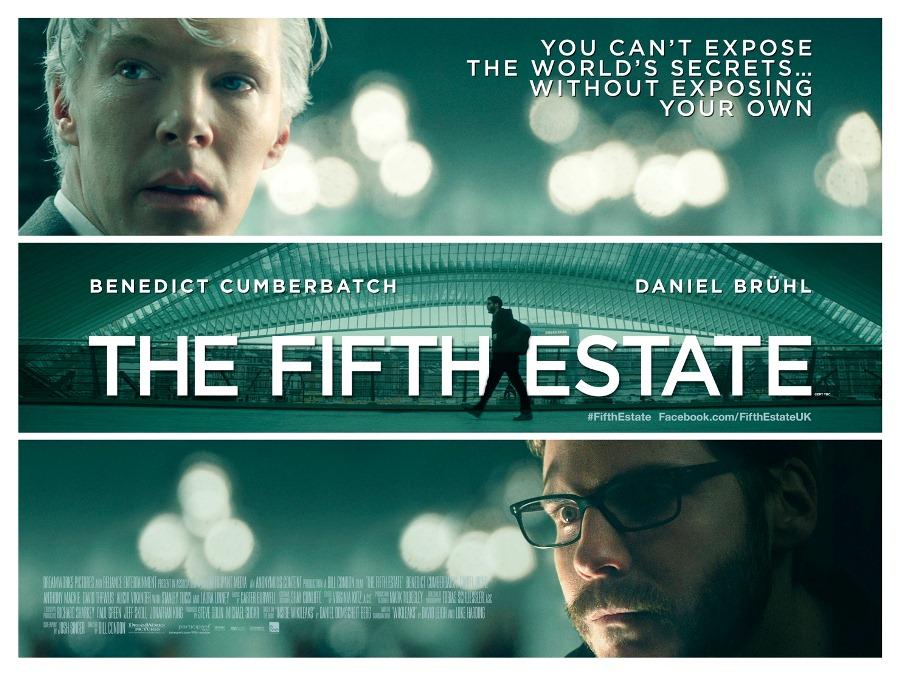
Benedict Cumberbatch has come a long way since his days appearing in straight-to-television movies and little known indie films. He has portrayed everyone from Stephen Hawking to Sherlock Holmes. In The Fifth Estate, Cumberbatch adopts on a different guise as a high-profile government whistleblower, Julian Assange.
It seems like the media maelstrom following Julian Assange just keeps on getting more intense as the year goes by. The Fifth Estate centers on Assange, the editor in chief of WikiLeaks, a website devoted to revealing government secrets, and his quest to rid the world of political corruption.
The film is directed by Bill Condon, who, oddly enough, directed both the penultimate and final installments of the Twilight saga. It’s a bizarre jump from films targeted at an audience of boy-obsessed tweens to those targeted at the politically aware.
Cumberbatch’s transformation into a slovenly Assange is uncanny, from the listless expression in his eyes to the limp white hair that falls in strands about his face. The Sherlock actor has become unrecognizable. He has become Assange, in both his mannerisms and appearance.
As of the end of October, the film flopped as one of this year’s worst wide-release openings. Clocking in at a depressing $3.1 million in North America during its opening week, The Fifth Estate has been accused of being “small and safe.”
I, however, enjoyed the film quite a bit. While I am no expert in politics of whistle-blowing, The Fifth Estate gave me an easy-to-understand timeline of everything surrounding Assange’s ascent to fame. I do agree that the film does not rely on fast-paced action. However, what the film lacks in special effects and heart-pumping speed, it compensates with great story telling of Assange’s journey from a nobody to a champion of freedom of speech.
The film does, nonetheless, give a slightly biased interpretation of Assange and his action. It almost steers clear of the sexual assault allegations, leaving only a brief reference in the end credits. And the fact that the movie framed The Guardian, a British newspaper that worked in tandem Assange to expose state secrets, as a martyr for free speech also irritated me as well. Why did the film portray all other international publications as trying to tear Assange away from his goals?
With a complex and intriguing plot that aims to educate the public about the hidden secrets of governments and regimes, as well as an all-star cast, this film deserves bigger audiences. It leaves me perplexed as to why this film did so poorly at the box office.
Perhaps this film simply does not cater to the needs of a generation that simply wants fast, easily digestible entertainment.
The fifth estate: what went wrong?
December 31, 2013
0


![[PHOTO COURTESY OF GOODREADS]](https://blueandgoldonline.org/wp-content/uploads/2025/09/Untitled-design-1-e1759063850793-1200x466.png)
![[PHOTO COURTESY OF WARNER BROS.]](https://blueandgoldonline.org/wp-content/uploads/2025/09/SPRMAN_Character_Art_Superman_Instavert_1638x2048_DOM-960x1200.webp)
![[PHOTO COURTESY OF SCOTT YAMANO]](https://blueandgoldonline.org/wp-content/uploads/2025/09/e608ae29-be1a-4440-9730-acb2d1438555_7200x4800-1200x800.jpg)
![[PHOTO COURTESY OF APPLE TV+]](https://blueandgoldonline.org/wp-content/uploads/2025/09/rev-1-F1-FPJK-0009_High_Res_JPEG-1200x633.webp)
![[PHOTO COURTESY OF PENGUIN RANDOM HOUSE, PENGUIN BOOKS, PENGUIN BOOKSHOP]](https://blueandgoldonline.org/wp-content/uploads/2025/05/books-1200x675.png)
![A large "Coulda Been Love" sign in front of the show set. [PHOTO COURTESY OF DRUSKI'S COULDA BEEN LOVE SHOW]](https://blueandgoldonline.org/wp-content/uploads/2025/05/IMG_1877-1200x678.jpeg)